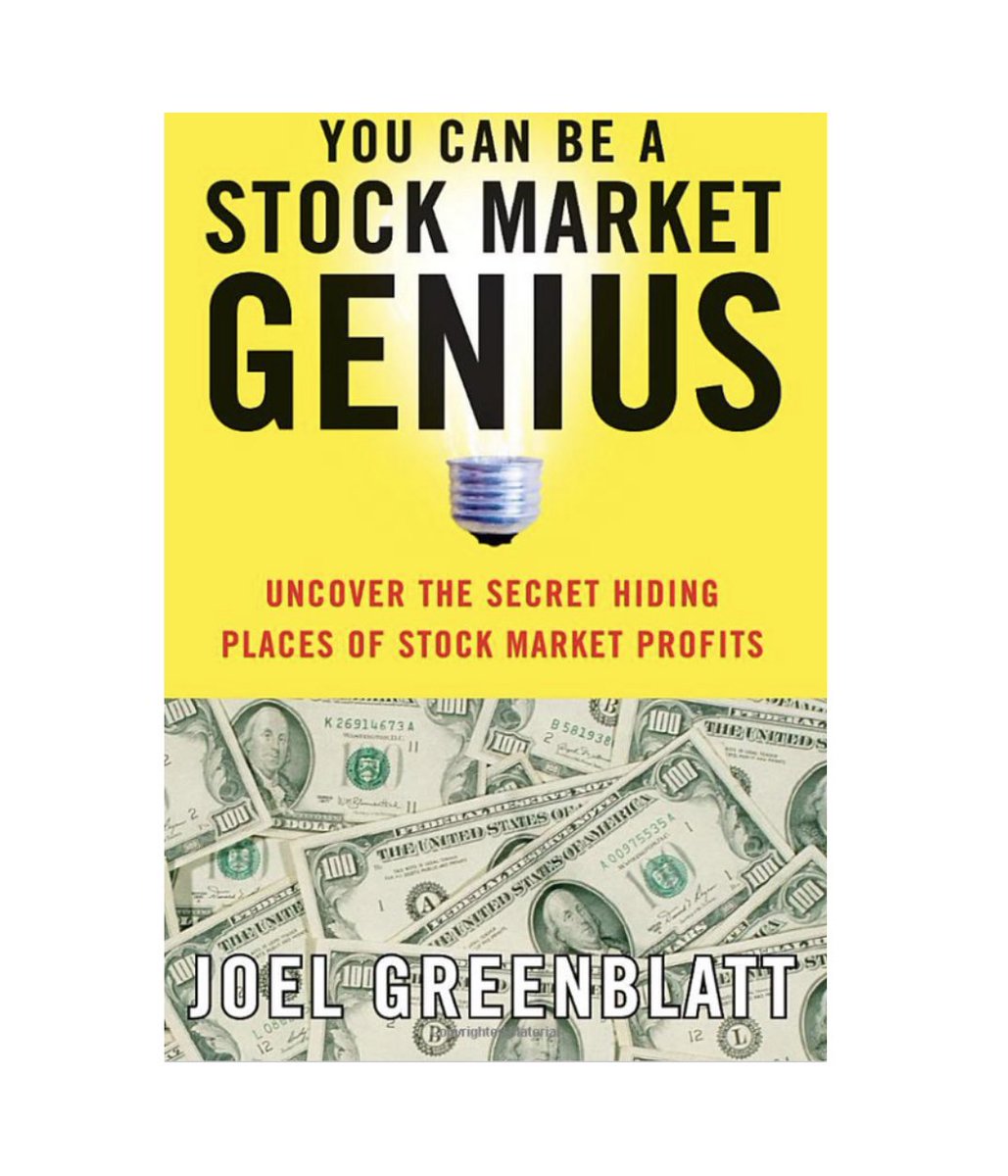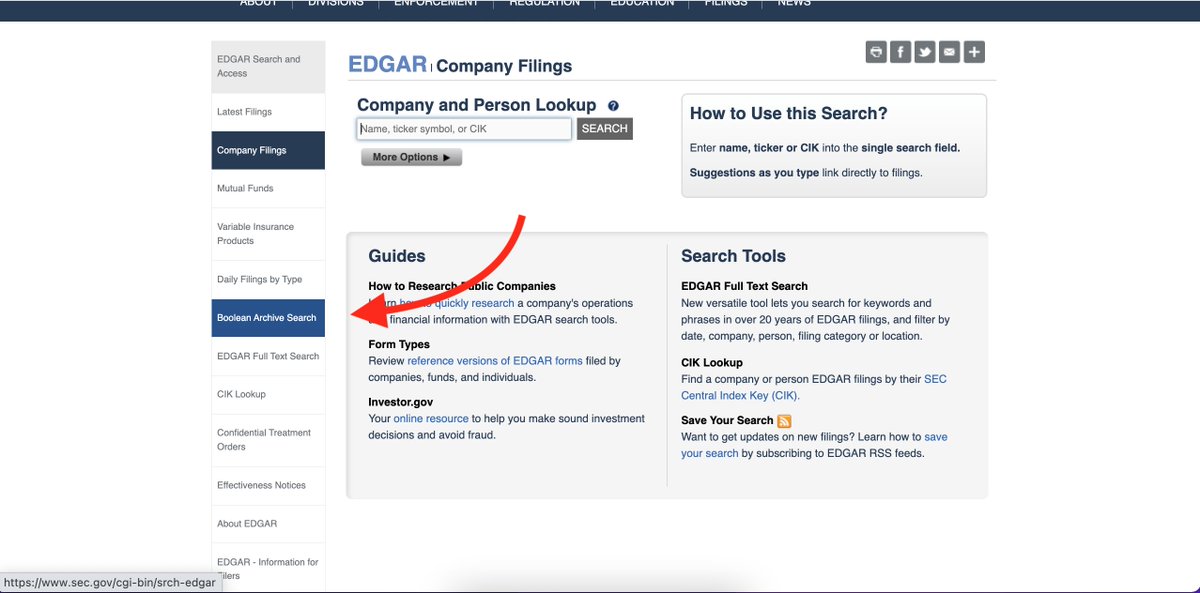
In “You can be a Stock Market Genius”, Joel Greenblatt explains special situations to the individual investor.
Special Situations is his field of expertise and he’s known for his investments in that area like no one else.
Here’s a summary of the Key Points 👇🏼
Special Situations is his field of expertise and he’s known for his investments in that area like no one else.
Here’s a summary of the Key Points 👇🏼

1. Diversification
Six to eight stocks.
That’s the portfolio size that offers reasonable diversification without sacrificing returns.
This is based on the assumption that the stock themself are not in the same industry or heavily correlated otherwise.
Six to eight stocks.
That’s the portfolio size that offers reasonable diversification without sacrificing returns.
This is based on the assumption that the stock themself are not in the same industry or heavily correlated otherwise.
One has to keep in mind that investing in special situations requires a lot of research.
Owning more than eight companies makes it impossible to keep track of everything inside a company.
And without that research, the investments get a lot riskier.
Owning more than eight companies makes it impossible to keep track of everything inside a company.
And without that research, the investments get a lot riskier.
2. Pick your Spots
Special situations also require special knowledge.
Without strong expertise in accounting and a willingness to dig deep, finding opportunities will be impossible.
Understanding all special situations equally well is rare.
Thus, focus on one or two.
Special situations also require special knowledge.
Without strong expertise in accounting and a willingness to dig deep, finding opportunities will be impossible.
Understanding all special situations equally well is rare.
Thus, focus on one or two.
3. Special Situations - 3.1 Spin Offs
When a company separates a subdivision or part of a subdivision and makes it an independent company, we have a spinoff.
Historically, both the spun-off company and the parent company outperform the market quite significantly.
When a company separates a subdivision or part of a subdivision and makes it an independent company, we have a spinoff.
Historically, both the spun-off company and the parent company outperform the market quite significantly.
The parent company outperforms because it got rid of a part of a business that underperformed.
The spinoff outperforms because of two reasons.
1. Depressed prices
And
2. Operational Freedom
The spinoff outperforms because of two reasons.
1. Depressed prices
And
2. Operational Freedom
Depressed Prices:
Nobody really wants to own the spinoff.
Investors wanted to own shares of the parent company, not some subdivision.
The same goes for institutions. They also have investing requirements that prevent them from owning companies below a certain market cap.
Nobody really wants to own the spinoff.
Investors wanted to own shares of the parent company, not some subdivision.
The same goes for institutions. They also have investing requirements that prevent them from owning companies below a certain market cap.
This circumstance creates selling pressing and, therefore, depressed prices of the spin-off.
Operational Freedom:
Besides management changes and restructuring, the independent company has a newly won operational independence and, also, pressure.
Operational Freedom:
Besides management changes and restructuring, the independent company has a newly won operational independence and, also, pressure.
It’s not a small and hidden away subdivision but an individual company that has to perform to stay alive.
These new incentives cause the spinoff to produce much better operating performance than before.
These new incentives cause the spinoff to produce much better operating performance than before.
3.2 Risk Arbitrage
Risk arbitrage describes the process of buying a company that is subject to an announced merger.
Investors speculate that the takeover goes through and buy the stock.
The difference between their buy-in and the premium paid by the acquirer is their return.
Risk arbitrage describes the process of buying a company that is subject to an announced merger.
Investors speculate that the takeover goes through and buy the stock.
The difference between their buy-in and the premium paid by the acquirer is their return.
There are two main risks with this type of deal.
First, the takeover never happens.
There are many reasons that prevent such takeovers from going through.
If that’s the case, the stock price mostly decreases to old levels and your money is lost.
First, the takeover never happens.
There are many reasons that prevent such takeovers from going through.
If that’s the case, the stock price mostly decreases to old levels and your money is lost.
Second, the takeover takes a lot longer than initially planned.
Again, there are many reasons this could happen.
If it does happen, it is accompanied by opportunity costs.
You might have parked your money in this trade for a year and end up with a 10% return.
Again, there are many reasons this could happen.
If it does happen, it is accompanied by opportunity costs.
You might have parked your money in this trade for a year and end up with a 10% return.
This is not necessarily bad, but in recent years, this would’ve underperformed most broad indices.
3.3 Merger Securities
Most merger transactions are paid in cash and stock.
But if there is not enough cash or the company doesn’t want to issue more stock, special merger securities can be used.
These can be all kinds of things, for example, a bond.
Most merger transactions are paid in cash and stock.
But if there is not enough cash or the company doesn’t want to issue more stock, special merger securities can be used.
These can be all kinds of things, for example, a bond.
Just like spinoffs, special merger securities are subject to a lot of selling pressure.
The majority of investors in a stock isn’t interested in receiving some sort of bond or other security.
Same goes for institutions.
This lack of interest is once again creating a bargain.
The majority of investors in a stock isn’t interested in receiving some sort of bond or other security.
Same goes for institutions.
This lack of interest is once again creating a bargain.
3.4 Bankruptcy and (Major) Restructuring
First of all, bankruptcy and restructurings are rarely a good idea for individual investors.
Here we should remember the point made above: Pick your spot.
Only invest in these situations when you have a real edge there.
First of all, bankruptcy and restructurings are rarely a good idea for individual investors.
Here we should remember the point made above: Pick your spot.
Only invest in these situations when you have a real edge there.
Greenblatt argues that these situations can be profitable when one enters at the right time.
Bankrupt companies often start over again and issue new stock.
That can be the right time to enter such an investment because
the stock is under selling pressure.
Bankrupt companies often start over again and issue new stock.
That can be the right time to enter such an investment because
the stock is under selling pressure.
The company might pay people that they still owe money in stocks of that new company.
These people are likely to sell the stocks and move on.
The company brand itself is also hurt after the bankruptcy.
Perfect conditions to buy the stock IF the new company seems healthy.
These people are likely to sell the stocks and move on.
The company brand itself is also hurt after the bankruptcy.
Perfect conditions to buy the stock IF the new company seems healthy.
4. Options
Greenblatt also achieved such outstanding returns through the use of options.
His rules for buying options were...
1. Only Call options, never Put options!
And
2. Two or two and a half year time horizon, no options that expire in a matter of weeks or months.
Greenblatt also achieved such outstanding returns through the use of options.
His rules for buying options were...
1. Only Call options, never Put options!
And
2. Two or two and a half year time horizon, no options that expire in a matter of weeks or months.
3. Only when the downside potential is well known.
Under these circumstances, the risk/reward of options seemed lucrative to him.
Under these circumstances, the risk/reward of options seemed lucrative to him.
If you want to learn more about Spin-off investing and see what my Portfolio looks like, feel free to check out my Spin-off Research program below:
stockspinoffinvesting.com/premium/
stockspinoffinvesting.com/premium/
That’s it!
If you enjoyed this Thread, you can Retweet and Like it so that more people get to see it too.
For more information on Spin-offs, check out my research program and give me a follow @stockspinoffss.
If you enjoyed this Thread, you can Retweet and Like it so that more people get to see it too.
For more information on Spin-offs, check out my research program and give me a follow @stockspinoffss.
• • •
Missing some Tweet in this thread? You can try to
force a refresh









